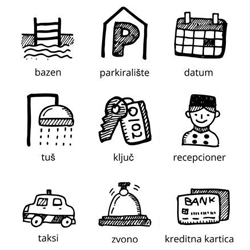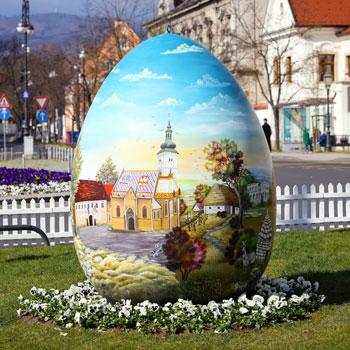What does the gender of a noun mean?
Grammatical gender is a specific form of noun-class system. Simply put, it means that every noun in Croatian is either masculine, feminine or neuter.
It's easy to do it for nouns that denote living things – if a person or an animal is male, its grammatical gender will be masculine, and for living things that are female, the grammatical gender will be feminine.
What makes it slightly more complicated is that the names of inanimate objects also have a gender, which is not determined by any of the characteristics of the object.
How to tell which nouns are in which gender?
Rules in Croatian as regards noun gender are fairly straightforward and the gender is determined based on the last letter of the word:
Masculine (muški rod)
Words ending in a consonant are masculine
(except about 250 nouns which are feminine but have a special declination)
Examples: muž (husband), susjed (neighbour), stol (table), ručak (lunch)
Feminine (ženski rod)
Words ending in -a are feminine
(except a very small number that are masculine)
Examples: voda (water), mama (mother), stolica (chair), čaša (drinking glass)
Neuter (srednji rod)
Words ending in -o or -e are neuter
Examples: more (sea), kazalište (theater), kino (cinema), pivo (beer)
But Croatian wouldn't be Croatian without exceptions. :)
There is one group of nouns that don’t follow the above-mentioned rules, and we are going to talk about that group in detail in a separate blog post.
Exercise: Which gender are the following nouns?
sunce – sun
Answer
neuter (srednji rod)
računalo – computer
Answer
neuter (srednji rod)
večera – dinner
Answer
feminine (ženski rod)
jezero – lake
Answer
neuter (srednji rod)
doručak – breakfast
Answer
masculine (muški rod)
kuhinja – kitchen
Answer
feminine (ženski rod)
prijatelj – male friend
Answer
masculine (muški rod)
prijateljica – female friend
Answer
feminine (ženski rod)
miš – mouse
Answer
masculine (muški rod)






